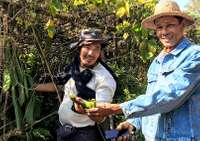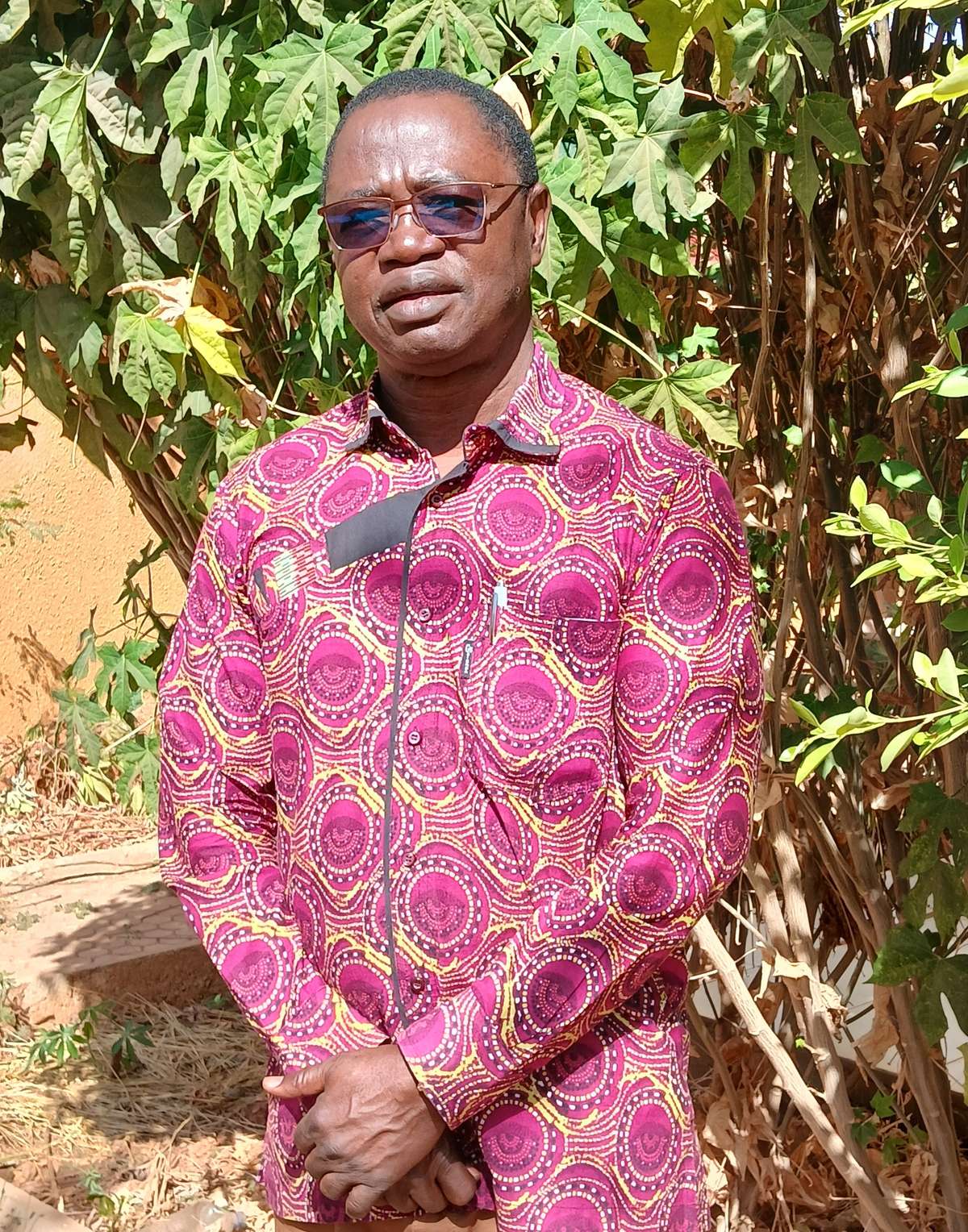Umulikaji wa Mwanachama wa Jumuiya ya ECHO: Bwana Tuntun na Thaung Si 2020-04-08

Dondoo kutoka kwa ripoti ya Patrick Trail - ECHO Asia
Ninapotembea shambani na Bwana Tuntun vijijini Myanmar, siwezi kujisaidia lakini kutabasamu anaponionyesha kwa kiburi biochar ambayo sasa anatengeneza na hutumia katika mchanganyiko wa chungu chake cha miche ya miti ya matunda. Badala ya kuchoma, sasa anageuza taka zake za kikaboni kutoka shamba kuwa rasilimali muhimu ambayo inaweza kutumika kuleta mazao zaidi, badala ya kupoteza kaboni yake kwenda kwa anga kupitia moshi.
Karibu mwaka mmoja uliopita, Bwana Tuntun alihudhuria Warsha ya Kuokoa Mbegu huko Pyin Oo Lwin na kujifunza jinsi ya kutengeneza biochar wakati wa moja ya vikao vya mikono. Mara moja alirudi nyumbani na kujaribu mwenyewe, na amefanikiwa sana. Bwana Tuntun sasa hata ni mwenyeji wa ukurasa wa facebook ambapo anashiriki mbinu zake za kilimo na wakulima wengine wanaozungumza Kiburma, akielezea mitindo kama biochar, miongoni mwa mingine!

Thaung Si (kushoto) na Tuntun (kulia) wakionyesha mbegu ya maharagwe ya upanga ambayo ilitoka katika Benki ya Mbegu ya Asia ya ECHO na sasa inakuzwa ili kusambaza benki hiyo ya mbegu huko Myanmar.
Mengi ya yaliyotokea hapa yanatokana na mshirika wetu muhimu katika eneo hili, Bwana Thaung Si. Kama rafiki wa muda mrefu na mshirika wa ECHO Asia, Thaung Si amejiunga nasi kwa hafla za mafunzo mara kadhaa na tumejifunza mengi kutoka kwake pia. Miaka mitatu iliyopita alianzisha Benki ya Mbegu ya Jamii kwenye Seminari ya Theolojia ya Lisu Baptist. Kupitia benki yake ya mbegu anafundisha wanafunzi kilimo na mazoea ya bustani, na amegusa kwa kiwango kikubwa maisha mengi, akipanda mbegu za aina nyingi tofauti. Ilikuwa hapa Bwana Tuntun na wakulima wengine karibu mia moja na washiriki walipata mafunzo hayo ya Biochar na mbinu zingine mwaka jana, na Thaung Si anayafuatilia mara kwa mara.
Jumuiya ya ECHO ina washirika wengi waliojitolea kama Thaunag Si katika eneo lote, na kote ulimwenguni. Washirika hawa, wanapotayarishwa vizuri, wanaweza kutayarisha wengine wengi zaidi!

